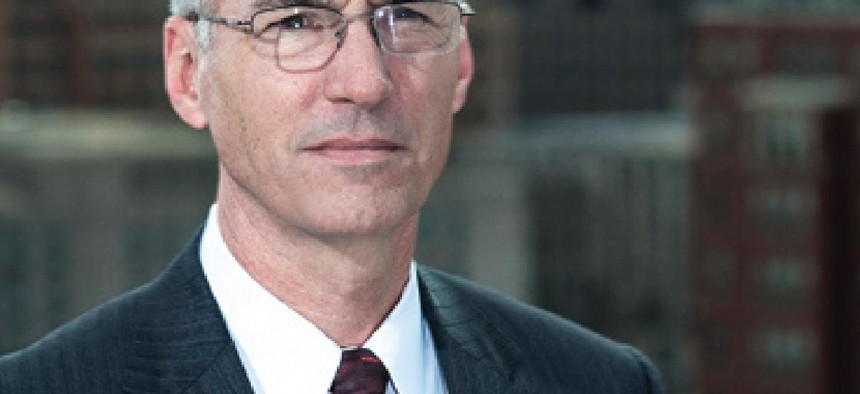Richard Spires: The long-term change agent

Drawing on decades of private-sector experience managing complex IT systems, DHS CIO and Eagle Award winner Richard Spires has been a key leader in the department's ongoing effort to unify its IT operations.

While most agency CIOs last only a couple of years, Richard Spires has been a rare exception. After serving as associate CIO and then CIO at the Internal Revenue Service for much of the second George W. Bush administration, Spires was tapped in 2009 to lead the $6.4 billion IT portfolio at the Department of Homeland Security. He now spearheads the development, implementation and maintenance of the department’s IT architecture.
Drawing on decades of private-sector experience managing complex IT systems, Spires has sought to integrate the department’s IT in line with Secretary Janet Napolitano’s vision of One DHS, and he has supported DHS’ component agencies and their specific priorities while continuing to encourage them to think enterprise rather than parochial.
That unified approach is a tall order DHS still struggles with, 12 years after its formation from 22 agencies. However, Spires said he tries not to get discouraged by the roadblocks but instead think of how to find the best across-government solutions. It is the same sentiment he evokes as vice chairman of the CIO Council.
"There are more than 50 ongoing initiatives across the council, and we’re really focusing on figuring out what is the one critical view rather than the many to get things done well," Spires said.
One focus area for the council’s executive committee has been encouraging the use of best practices across the government. Last year saw intensified efforts to expand the annual federal CIO Boot Camp, which caters to senior IT leaders -- incumbent and incoming.
"Traditionally, the boot camp gets 40 to 50 people, but last year we had more than 150 people," Spires said. "We did a lot more outreach, and we worked to get people to show up. It was well received."
The council is also in the midst of launching CIOpedia, a wiki on how to operate as an agency CIO. The crowdsourced project will help government CIOs navigate the myriad rules and regulations and draw from governmentwide best practices. "This is something that hasn’t existed before, and to me, that’s good stuff," Spires said.
He credits his success to having a genuine desire to improve the federal sphere. "I have a real passion for wanting the government to operate more effectively -- and that’s not a political statement," he said. "It’s really about good government and not wasting taxpayer money and doing the best we can with the resources we have. IT can be such a transformational part of that, if done correctly."
Spires acknowledged that the road ahead has plenty of speed bumps. But when things work out, it is all worth it. "There are a lot of frustrations in a job like this, but what’s pretty amazing is how sometimes you get the right alignment of the right people, and the organization is moving in one direction," he said. "When that happens, you can move mountains."
Like any good leader, Spires attributes DHS’ successes to the team effort rather than to any individual work he has performed.
"I like to think I’m a catalyst," he said. "There are many people who come together to drive the kind of change we are trying to achieve at DHS and across government. I’m proud to be part of that community."
NEXT STORY: Congratulations to the 2013 Federal 100


